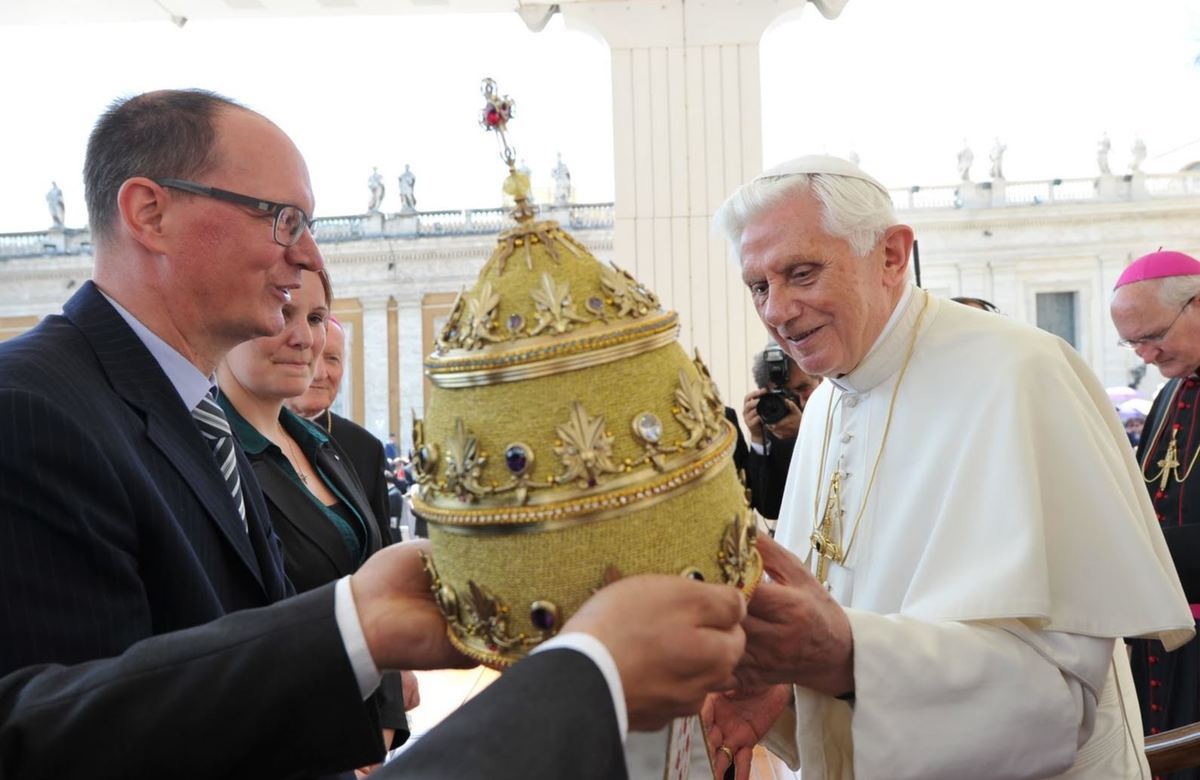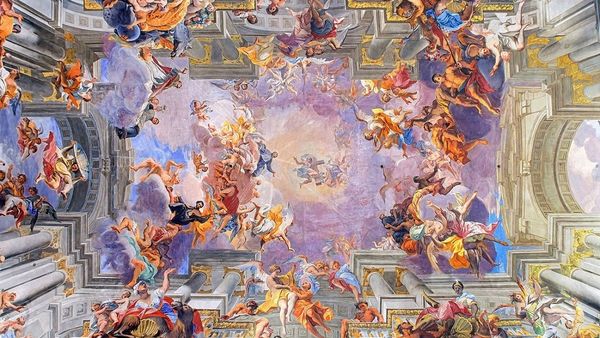1. Faith is a Contact Sport.
2. Christianity cannot be a gift to the world if it comes with empty hands.
3. God sometimes finds it necessary to rough the passer.
4. Societies and their gods are naturally violent and our only hope is God—the biblical God, beyond all societies and gods, who is Peace itself.
5. To be free is not only to have avoided the coercion of others, but also the compulsion of the idols of one’s world and society and above all the compulsion and idol that is yourself.
6. The peace that passeth understanding is neither brought about by nor guaranteed by us. We are cooperative agents in a process and a goal that transcends us.
7. Conscience is the inconvenience of listening to the clear voice of God rather than the noise of the rabble or the static of the self.
8. Christianity does not exercise the option for justice because it is made up of good people. It exercises the option because God insists on nothing less.
9. Love your enemy is a divine command, a terrible divine command, impossible without divine aid.
10. I do not need to become less of a Christian in order to tolerate others. I need to become more Christian in order to actually love them.
11. God’s love is not sentimental. Rather it is a form of perception. God sees something redeemable in you beyond your sullen rage, the accumulating mistakes, and your apathy. God has no intention of giving up on you.
12. Be a Christian. But let’s admit that Christians are criminal and that their crime is love.
13. You don’t need to forgive someone for playing the music too loud. You need to forgive someone who doesn’t care how you feel or whether you exist. And then you can’t.
14. The person or group who does not forgive and the person or group that is unforgiven obsess and shrink. There is a knot that does not seem capable of being untied to set either free.
15. Forgiveness is the knot that cannot unravel without us, but neither is it our act. This act which is not solely our act sets us to live again, to be again, to have a story that is not a repetition of the same old thing.
16. The Bible is just like any other book except it’s totally different. That’s the meaning of "scripture."
17. When you read the Bible the Bible reads you.
18. The Bible is really old. But as the testament and vehicle of God’s love it is younger than you.
19. “I can and will read the Bible on my own.” Two questions: when did that happen, and was your salvation at stake?
20. Tradition is bad. So Newton’s law of gravity is wrong?
21. The Church is an extension of the election of Israel.
22. The Church is corrupt. So are its members.
23. When the Church sins we the believers are put in something like concussion protocol.
24. Is Christianity damaged more by shallowness than sin?
25. The Church is the carrier of the kingdom of God. At the same time it cannot be identified with it. The "spotless bride" in fact it is sinful and in need of repentance.
26. Christ’s humiliation continues in the Church which betrays him.
27. The "I believe" finds its context in the "we believe" of the Church. The "we believe" of the Church is specified and deepened in the "I believe" of the person.
28. In Christianity each of us is inalienably alone before and with God and equally inalienably before and with others.
29. God is a reality ignored because he is too much; culture is the reality we pay attention to because it is too little.
30. God is telling you he loves you. You simply can’t hear it.
31. Not I think therefore I am, but I am loved therefore I am.
32. God is the ultimate verb and the actions of creation, redemption and sanctification are its notices.
33. God always moves faster towards you than you move towards him.
34. God is not a vampire. Our existence does not feed his.
35. God loved the world into existence. Could we say he remembered it into existence?
36. Perhaps instead of speaking of God as near or far or over and under why not say God nears or withdraws or God draws me up from where I am or where I have fallen to.
37. If God opens up dimension of height, the same God earths me into an unimaginable belonging.
38. I want to know whether I hold together my experience, when it is not evident that the jumble of experiences speaks a determinate recognizable me. If the experiences are held together, then from where and by who?
39. Between the vale of this life and the mountain of the next is a veil. You cannot draw it back. God can.
40. One of the major problems with Christianity is that we have lost both the know-how and the will to say "Father."
41. God is dead if we neglect or refuse to kneel.
42. Reason cannot contain the incarnation and is stretched to breaking point on the cross. But reason can transcend itself because of these two scandals.
43. Christ is entirely what he does. He does who he is.
44. Christ gives all that he is so that we can be more than we are.
45. Christ gives all that he is so that we give more than we have.
46. The Lord goes before you into the night of your loneliness, pain and your death and greets you in the darkest moment.
47. There is no depth you can fall into that Christ is not there to bear you up. All that is required of you is to say “I don’t want this! I don’t want to be this!”
48. The saint is not an ethically perfect person, but an ambassador of love.
49. The Spirit is the wild card, what God has up his sleeve when things break down.
50. The Spirit is the divine power that puts me on my knees so that I can stand against evil and with what gives life.
51. The Holy Spirit works with the grain of wood. In exceptional cases it works against it.
52. Christ is the new Adam, the new Abraham, but above all the new Moses who repeats and surpasses Moses’ intimacy with the Lord of creation and salvation.
53. Christ is sovereign over all that we say and have said about him.
54. Christ's submergence in the water of baptism figures the going down into death of the cross and the resurrection.
55. The gospel reveals that we are given to idolatry. In the end this always means the worship of the self.
56. There is a crack in the self into which temptation leaches.
57. Charism, spectacle, and loud certainty are the sign of the Anti-Christ.
58. Barbarism comes in many forms. Secular demonization of Christianity is but one of them.
59. In times of chaos the Christian is recognized by discernment, measure, and waiting.
60. A parable explodes the limits of justice and opens up the shocking space of love.
61. However lost in the land of unlikeness you are God can and will find you.
62. The Gospel says do not stop at what is possible for you given your situation. It asks the impossible and in doing so calls us to be saints.
63. Before the face of Christ the least important thing you can do is be right.
64. To be Christian: to learn to see the face of Christ in the person who has no face.
65. Prayer reveals not only that you are not enough, but that you are listening and talking to someone who is more than enough.
66. The surprising thing about prayer is that while it appears that you are leaving here you get "here" back. Even more you get here and now for the first time.
67. Prayer is impossible unless you pray with Christ. Christ makes your prayer possible. He will pray you.
68. The rich man precisely as rich man is not a problem. The inability to see others and have regard for them is.
69. Why is it that with regard to most good things that happen to us we say that we deserve them and that we say with regard to all bad things that it is bad luck?
70. Christianity is many things; a system of belief, an ethics, a cultic form of life. But first and last it is a vision. We substitute the part for the whole when we forget this.
71. Love happens when "I” and “me” are overshadowed and there is just "you" or "yous." While love is a doing best left unreflected, it is routinely the case that one feels for the first time truly free.
72. Love is a gift and is freely given, and yet as one gives it or experiences it, one feels it could not have been otherwise.
73. There is nothing feeble about love. One dies for it. More specifically one dies that another can be and all that they were meant to be.
74. Love is not blind. Love is the ability to see a singularity, attest to it, celebrate it, and hope for it.
75. Love is a work without the burden of obligation.
76. To be loved is terrifying. Someone has seen you all the way down to the bone of your hope and your fears. To accept it or not?
77. Being loved is the only guarantee that you will be.
78. The God of Jesus Christ is the God of Israel, just as the Church is an extension of the election of Israel.
79. Action without contemplation is blind. Contemplation without Christian action is empty.
80. Christian vision makes social action “Christian.” Social action gives testimony to and verifies Christian vision.
81. In Christianity delight is the mother of to-do.
82. To hope is to hope for what is invisible, what is not, and what cannot be inferred from our current situation. In this sense hope is almost always desperate.
83. To hope is to hope for the right thing. But what is the right thing? Is it justice, a world of recognition and love, the end of physical and psychological pain, the end of sin?
84. I am a being of time and history. I can do only so much. We can do only so much. God has to do the rest.
85. If I hope in eternal life, I am hoping for more than continuing to exist after the apparent absoluteness of death. I am hoping to be transformed in my capacity to see, love, and for relations with God and others.
86. The resurrected me is an impossible actual me. It is a joyous affirmation and exaltation of the flesh that is ratified in the incarnation.
87. Death is end and passage, passage and end.
88. Hell is the final incoherence.
89. Hell is the madness of me alone.
90. God cannot be inspected from a room with a view.
91. The answer to the overwhelming question who am I? is another question: what gifts of gold, frankincense and myrrh are you bringing to Christ and to the world?
92. In order to be here, I am asked to touch, to dirty my hands. I am asked to weep.
93. I am asked to use all of my intelligence and wit to alleviate. I am asked also to remember one person in an alleyway in winter, and one person burning without shelter under a red sun in the endless summer.
94. The limits of our love are the limits of our imagination.
95. Beware of loving every man in general and no man in particular.
96. It takes a lifetime to learn to tell the truth.
97. Without truth there is no love, there is only endless isolation.


